Controlling Culicoides in the Environment
In Northern Europe the control of Culicoides has previously been neglected as they were not significant vectors of disease before the arrival of BTV-8. Effective Culicoides control requires control in the habitat of the midges as well as control on affected animals.
Modification of the breeding habitat
Culicoides midges breed in moist conditions in a variety of habitats, particularly damp, muddy areas and in faecal and plant matter. Modification of these areas by removing organic matter and draining muddy areas, form an important part of the control strategy for Culicoides.
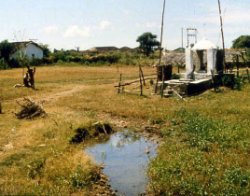
This stagnant pond with surrounding marshy area is an ideal breeding ground for Culicoides midges
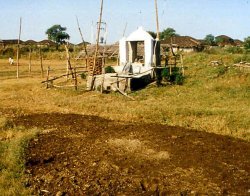
The breeding habitat has been modified by draining and filling the pond. The area is no longer suitable for Culicoides midges to breed in.
The use of laravcides in possible breeding grounds and environmental control with adulticides are also used.
Control in buildings can also be with the use of :
- Fly traps
- Spray-on method (Butox EC)
- Scatter baits
- Paint-on method
- Mists
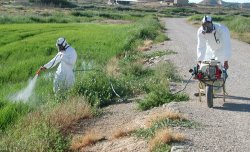
Spraying a larvacide in a typical breeding habitat for Culicoides.
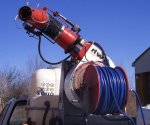
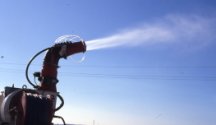
Equipment and the spraying of an adulticide to control adult midges.
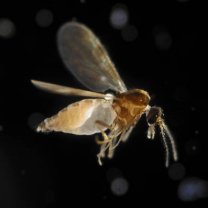
www.bluetongue-info.com
For more information about Bluetongue and the control of BTV-8 in Europe see the MSD Animal Health Bluetongue website.

